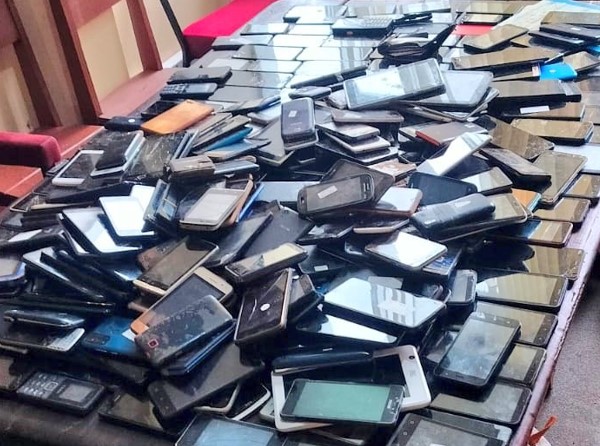Nearly half of Kenyan mobile users targeted by scams - World Bank

In Kenya, 49 per cent of mobile owners received at least one scam call or message during the year, often prompting them to share money or personal information.
Mobile phone users in Kenya are facing an increasing risk of falling victim to scams, with almost half reporting that they received fraudulent calls or messages last year, a World Bank survey has revealed.
The report ranks Kenya as the second-most exposed country to mobile phone scams among 10 sub-Saharan nations studied, only behind Tanzania, where 52.5 per cent of users encountered such attempts.
More To Read
- Man pleads guilty to SIM swap fraud targeting ex-OCS Talaam in Albert Ojwang murder case
- Mombasa water project sparks outrage in Mwembe Tayari over job promises, disruptions
- 11 per cent of Kenyans use mobile phones they do not own - survey
- Top camera buying tips for beginners: What you need to know before your first purchase
- KeNHA revises Isiolo-Mandera road project, adds new features to enhance cross-border links
- Over one-third of Kenyans spend over six hours daily on social media, GeoPoll survey finds
In Kenya, 49 per cent of mobile owners received at least one scam call or message during the year, often prompting them to share money or personal information.
Common scams include fake financial requests, prize notifications, mobile money reversals, or bogus government alerts, all of which have become a persistent problem.
Of those targeted, two per cent ended up sending money to fraudsters, while 47 per cent ignored the attempts.
Meanwhile, 51 per cent of users reported they had not received any scam calls or texts. Other countries included in the survey were Cameroon, Gabon, Ghana, Lesotho, Nigeria, Senegal, Uganda, and Zambia.
The Communications Authority of Kenya (CA) is responsible for handling consumer complaints about fraudulent communications as part of its role in regulating the sector.
To curb rising fraud, some mobile operators are adopting advanced technology and strengthening Know Your Customer (KYC) processes to prevent SIM card abuse.
In May, Airtel Kenya introduced an Artificial Intelligence system to detect spam messages in real time, labelling them as ‘Suspected SPAM’ without reading the actual text.
The tool examines more than 250 factors, including sender behaviour, message frequency, and target locations.
The World Bank also recommends that vulnerable groups, especially women and marginalised communities, receive digital literacy training to recognise scam attempts and apply privacy safeguards on their devices.
“Accessible, confidential reporting channels with transparent processes for handling cases can enable victims to seek help without stigma,” the report emphasises.
Top Stories Today












































